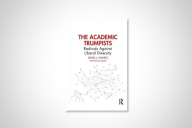You have /5 articles left.
Sign up for a free account or log in.
Accreditors are under fire from the U.S. Education Department for not being tough enough on the colleges they accredit. But the Southern Association of Colleges and Schools has again found itself in court for allegedly being unfair in seeking to penalize a college. A federal court this month -- in the latest ruling in a dispute between the association and Hiwassee College -- rejected all but one of the college's long series of claims against the association. But because of that one issue, an order barring the college from taking action against Hiwassee remains in place.
Hiwassee sued the Southern association in 2005 shortly after the accreditor moved to strip accreditation from Hiwassee, a private, two-year college in Tennessee. Through a series of court rulings, Hiwassee is currently considered accredited but on probation. In its reports, the association cited numerous problems -- primarily financial -- at Hiwassee, as recounted by Judge J. Owen Forrester.
Hiwassee's suits and its most recent request for court relief are based on objecting to just about every part of the SACS review. The accreditor is criticized for placing too much emphasis on financial issues, for not having enough true "peer" institutions like Hiwassee, and for changing its accreditation standards. The college said the SACS review panel didn't have enough financial expertise, that the SACS staff members didn't do their jobs, and on and on. The bottom line from the college on these claims -- all but one of which was rejected by the court -- is that Southern denied Hiwassee due process.
The one issue on which Hiwassee swayed the court was an allegation of conflict of interest in the appeals process.
The conflict, according to the ruling, took place when Hiwassee had a hearing before the SACS appeals committee. One committee member had to miss the meeting because of a family emergency so a replacement was selected. Judge Forrester accepted Hiwassee's contention that the replacement tainted the process because he had served on the compliance and reports committee that had examined Hiwassee in 2000 and 2003. SACS noted that the replacement never voted on the accreditation of Hiwassee, but the judge accepted the college's claim. Forrester found that because the final determinations of SACS were based in part on earlier reviews of the college, the appeals process was flawed.
Hiwassee officials did not return calls seeking comment, but they issued a statement claiming victory against SACS. “This is a significant moment in our legal efforts,” President Jim Noseworthy said in the statement. “We have prevailed on one of the several issues of our case. The decision means SACS cannot take steps that would cut off Hiwassee's financial aid or remove accreditation.”
SACS has faced a series of legal challenges to its moves in recent years to take action against colleges. So how does it feel about this latest ruling? SACS officials said that they had been advised not to talk to reporters about the issue, and the accreditor's lawyers also said that they were not talking while they were reviewing the decision and considering options.
Tom Bemberg, vice president and chief of staff at SACS, is one of the association employees whose conduct Hiwassee challenged -- and whom the judge said had not done anything that raised due process problems. Asked if it was ironic for SACS to be told it couldn't take action against a college when the Education Department is pushing accreditors to be tougher, Bemberg chuckled and said, "it's pretty obvious what the situation is."








